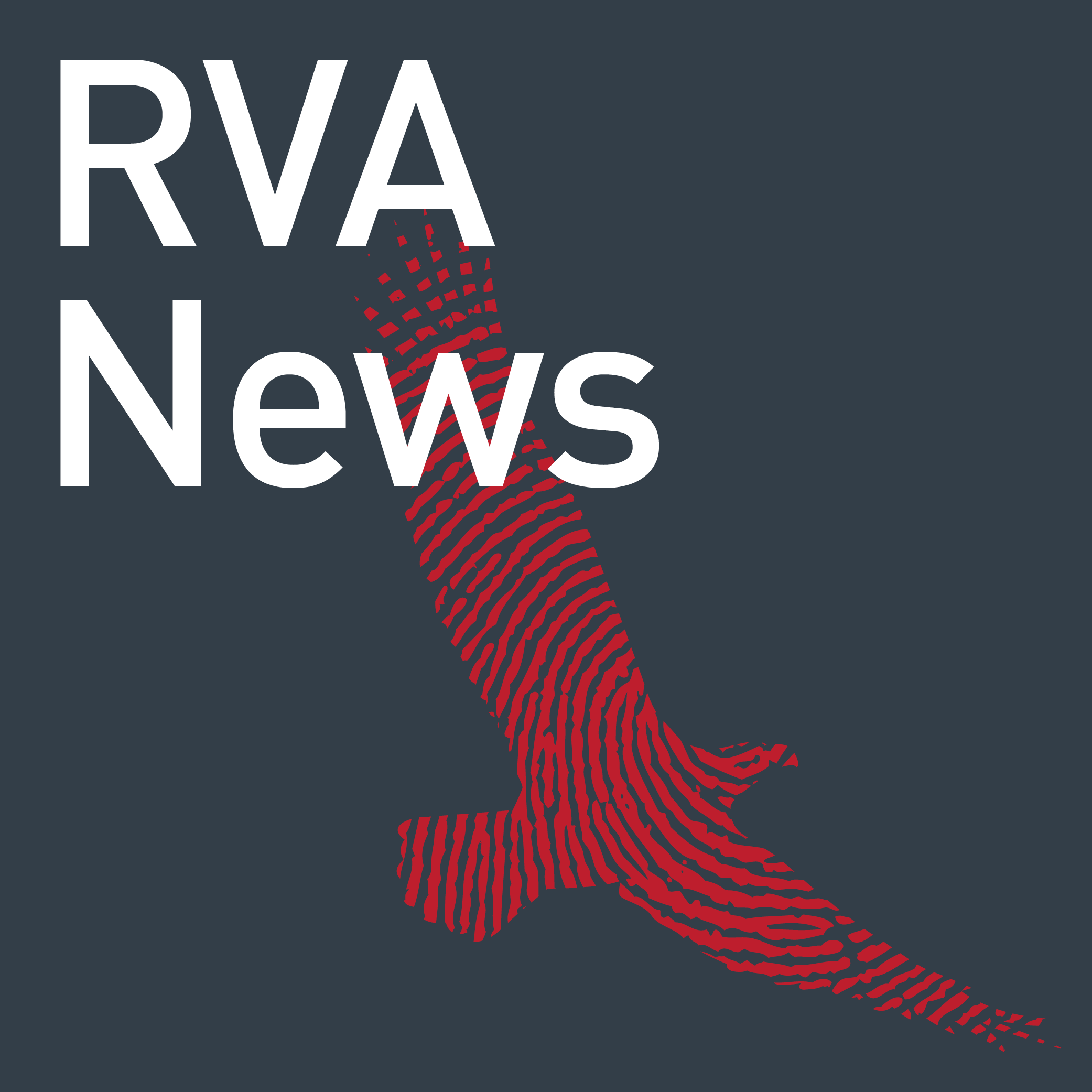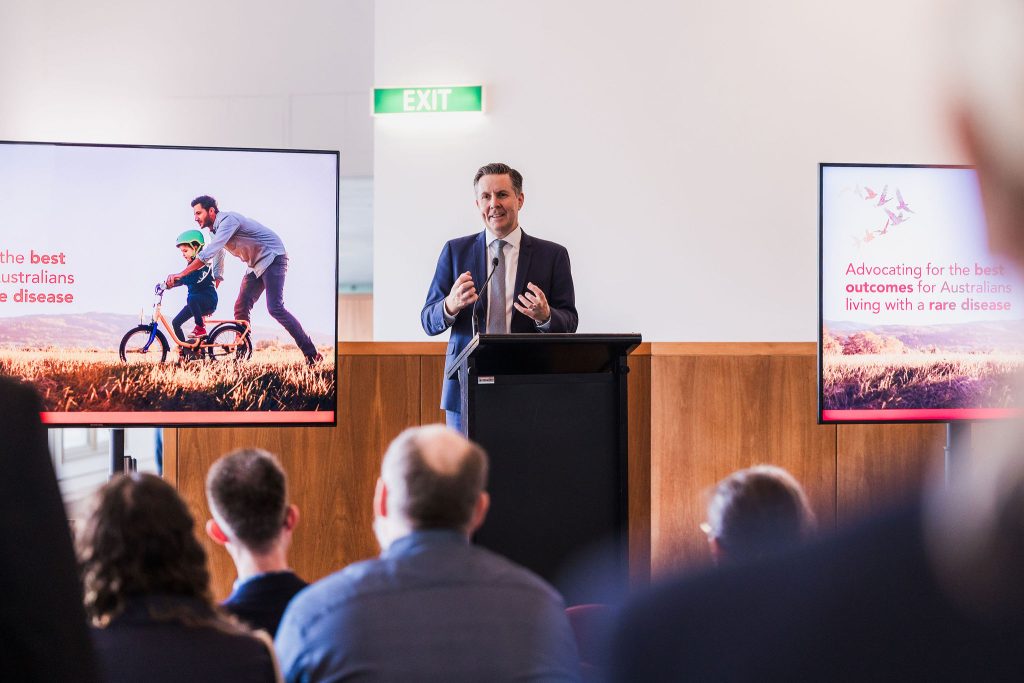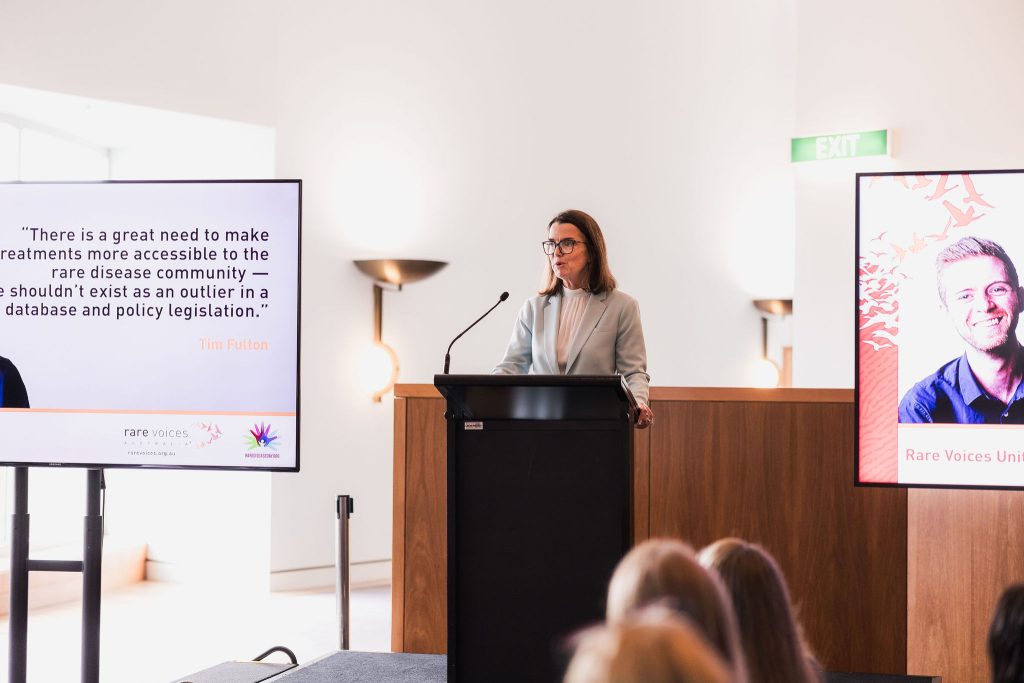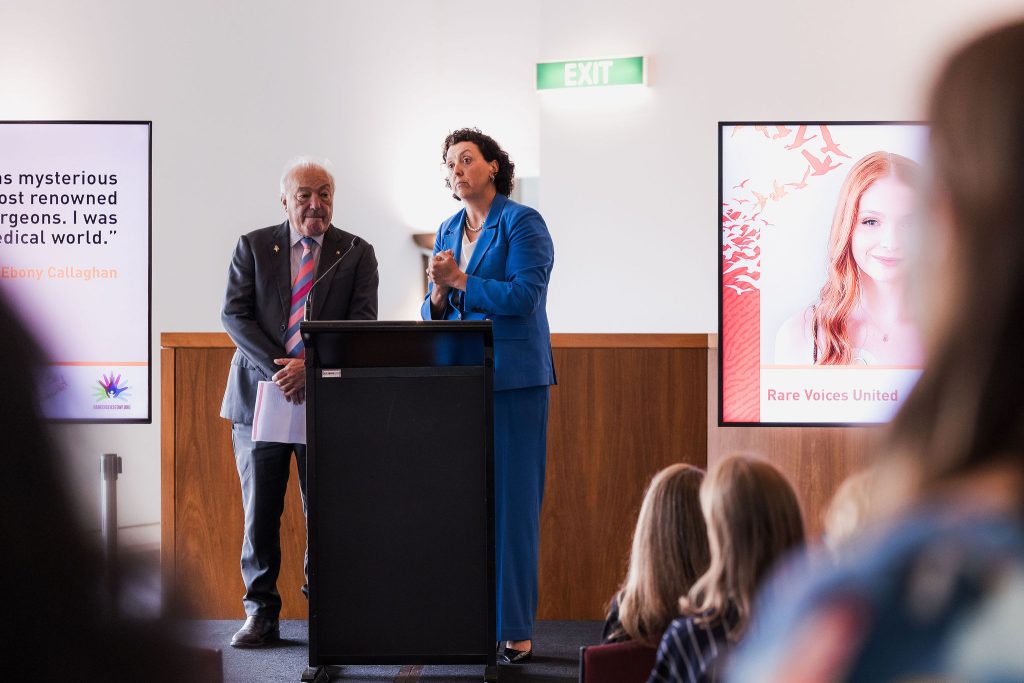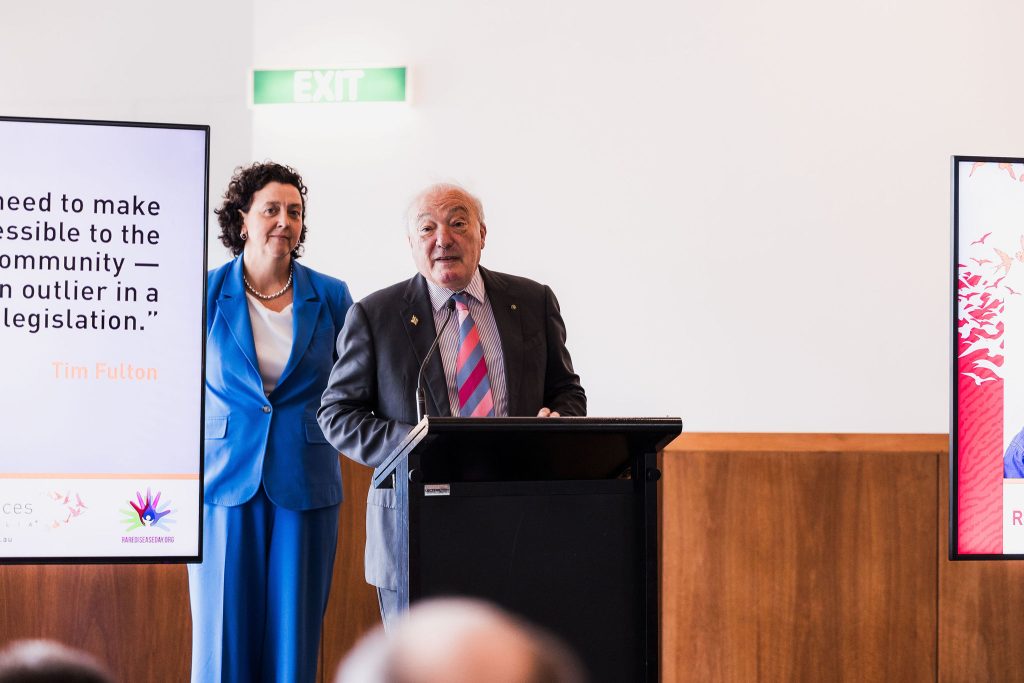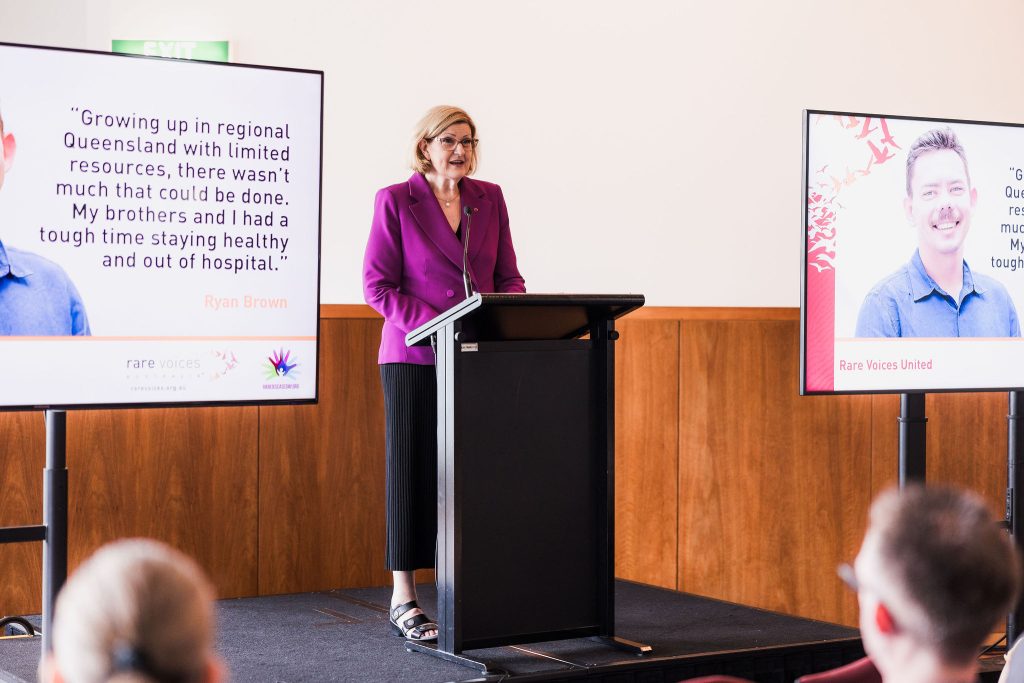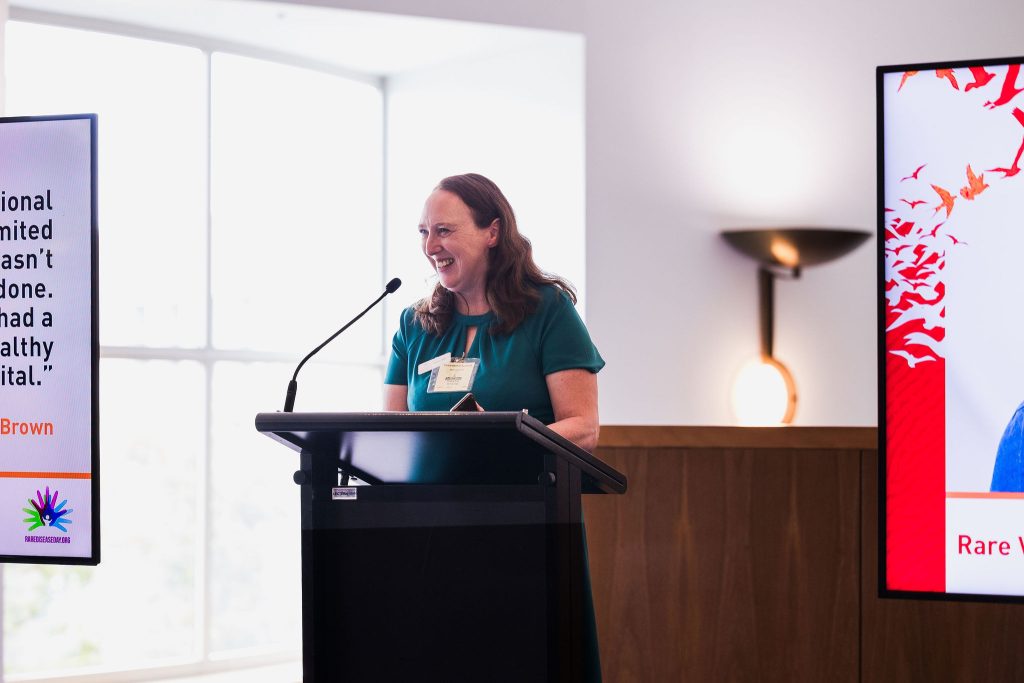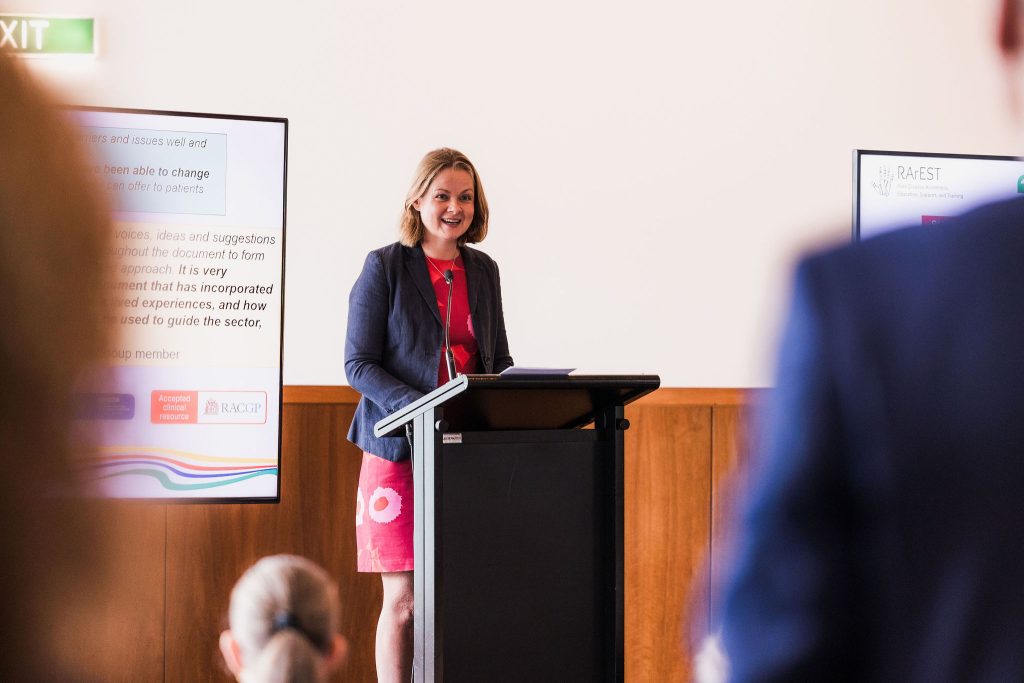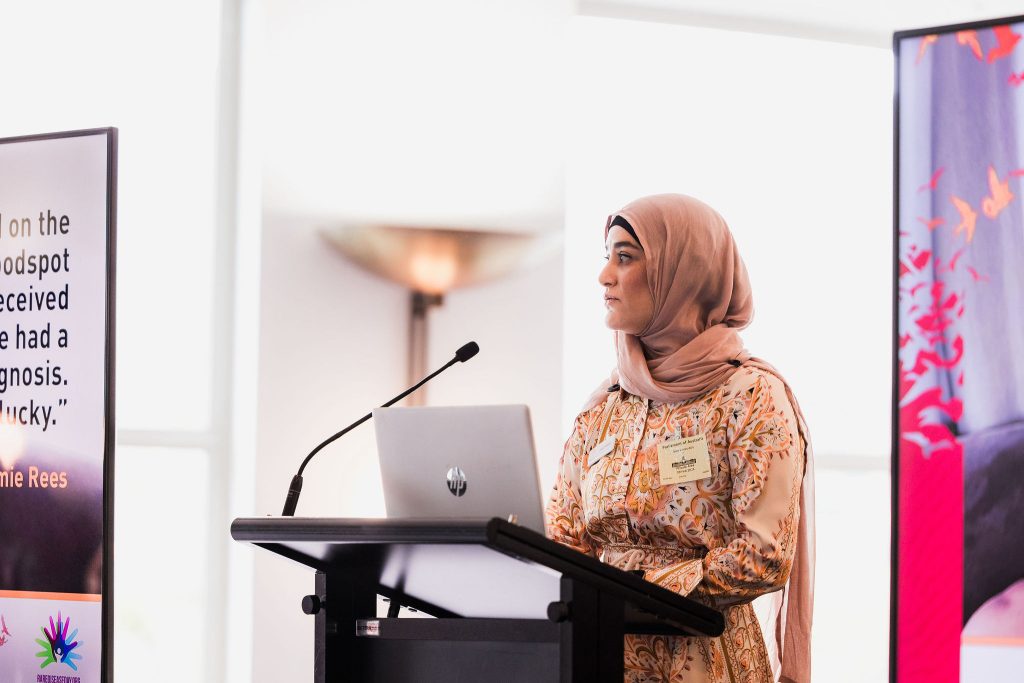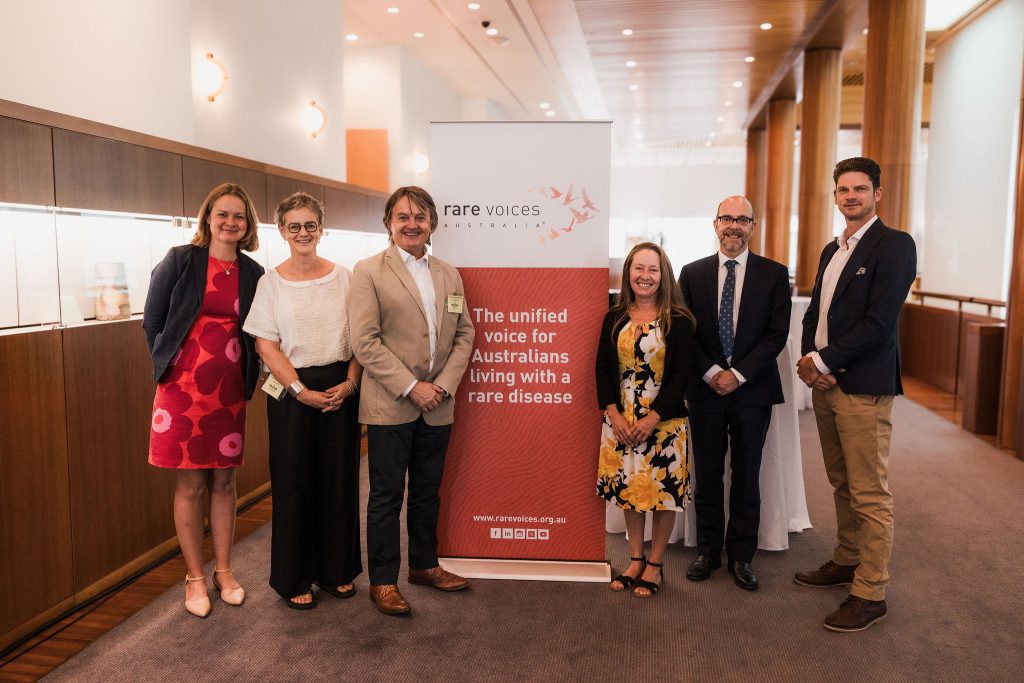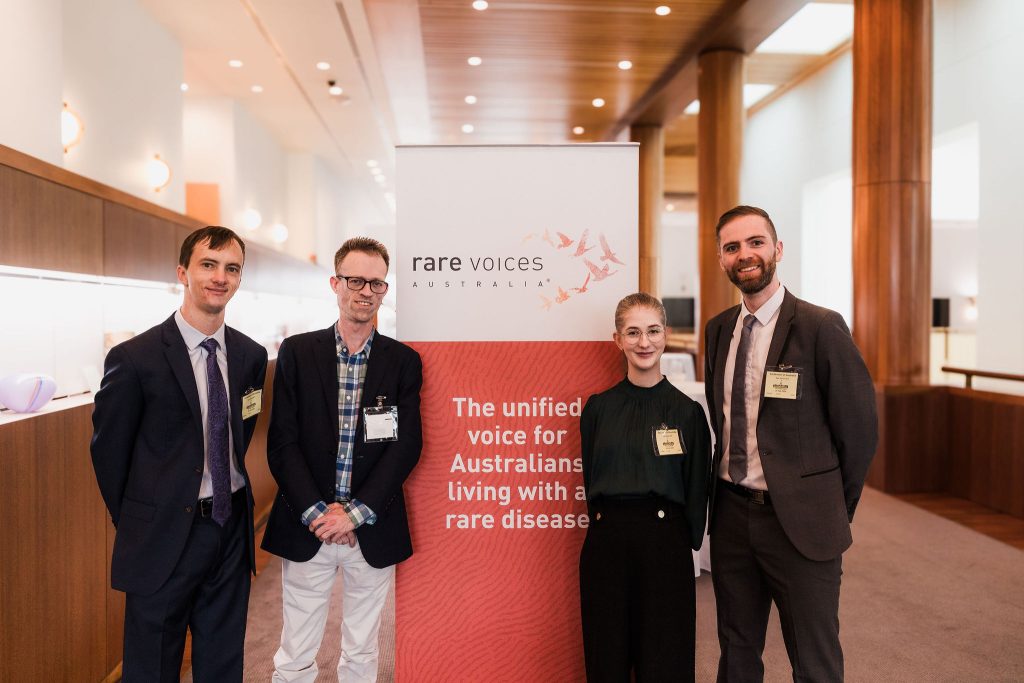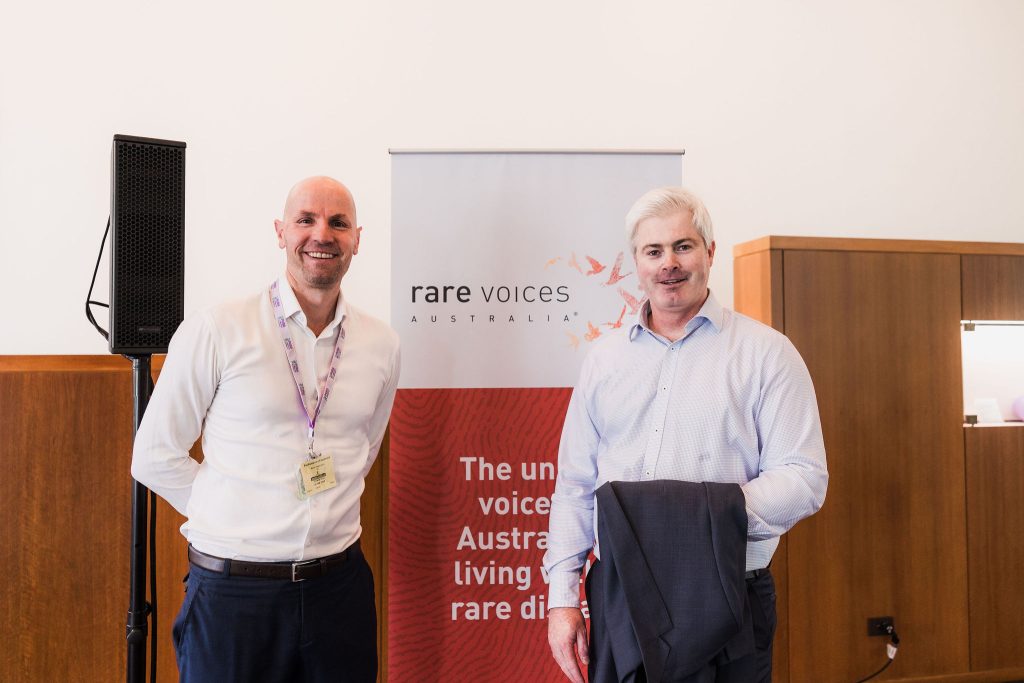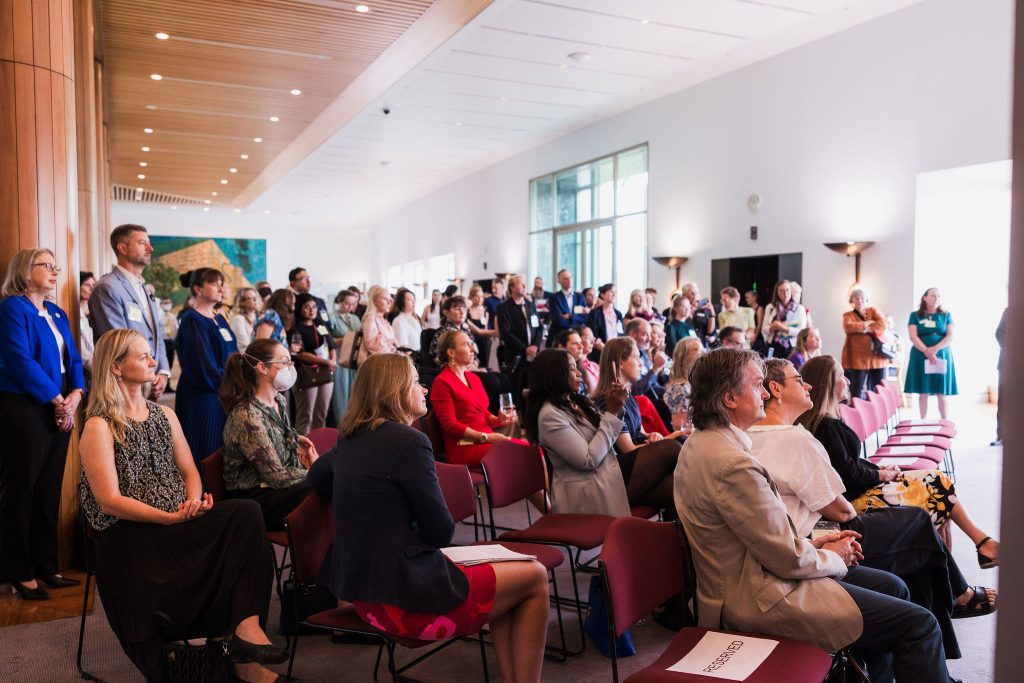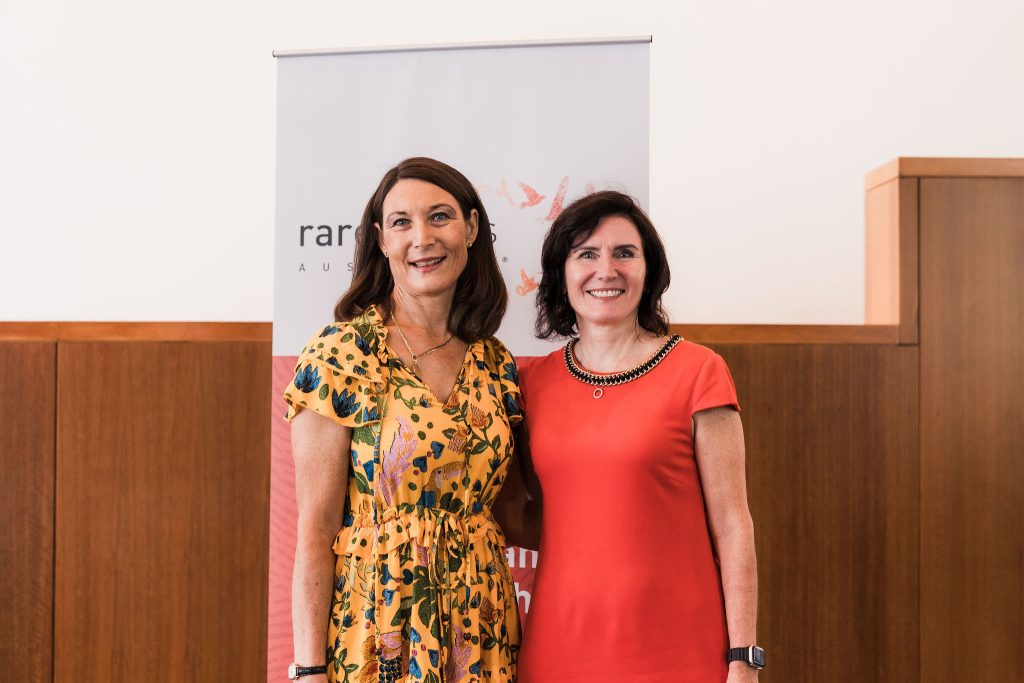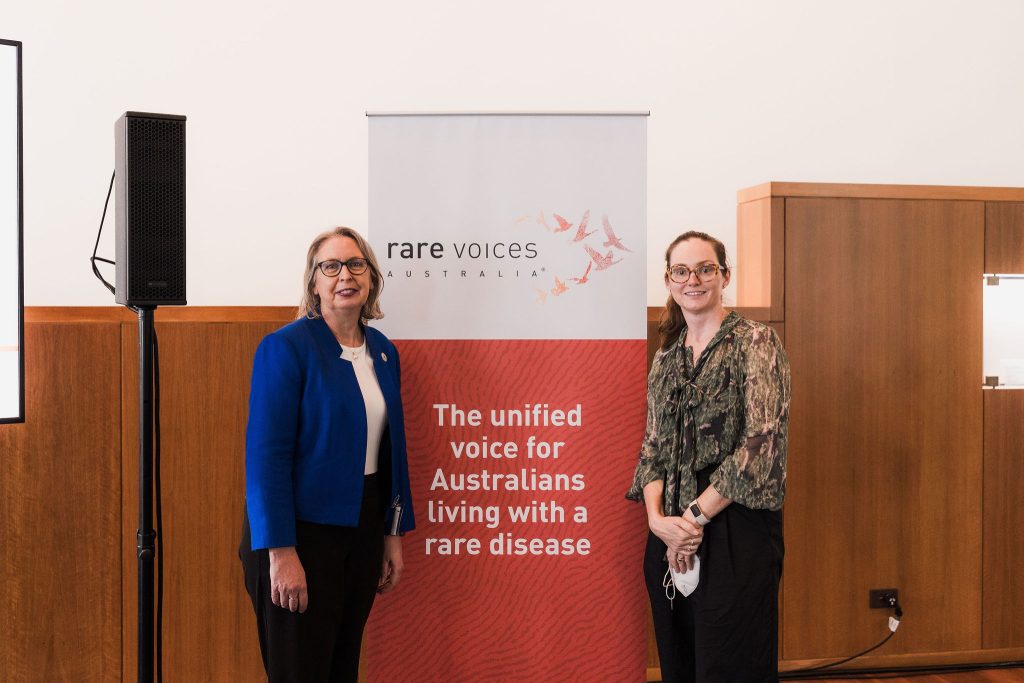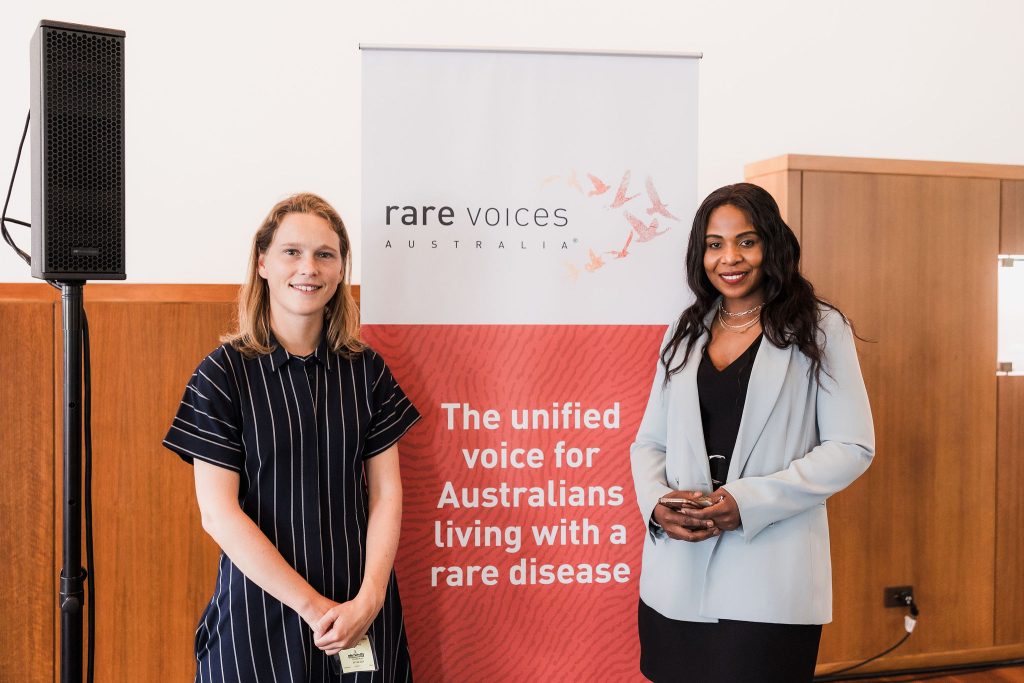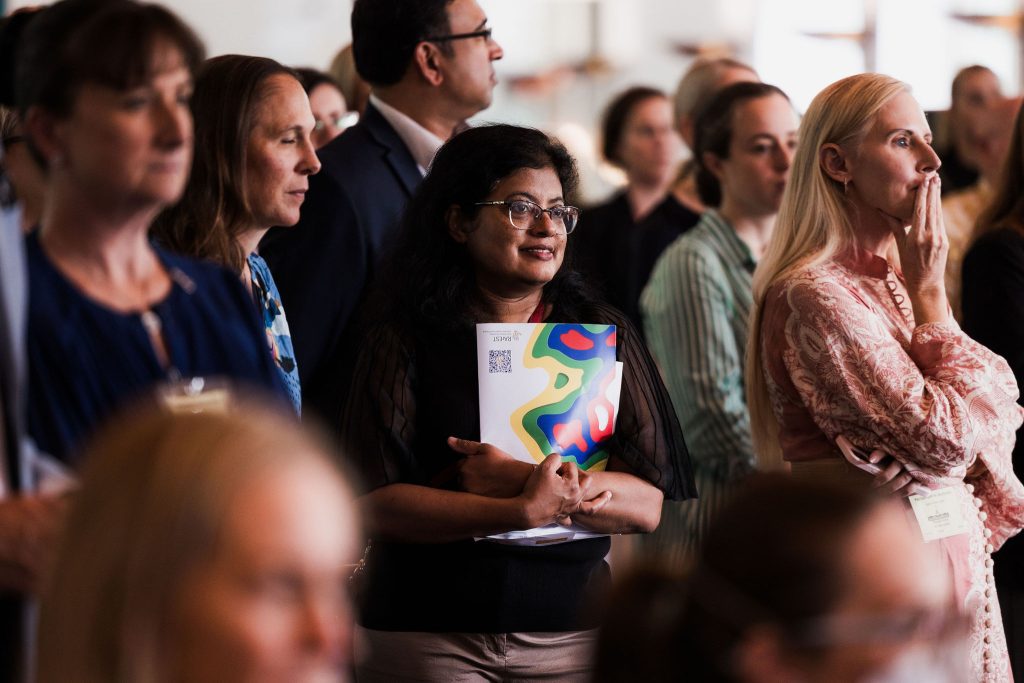This year saw the culmination of several substantial reviews of the disability landscape across Australia exploring the lived experience of people with disability and how the many systems, policies and government departments that support this sector need to transform to better meet the needs of people with a disability.
As of December 2023, there are over 250 recommendations and 139 actions for State and Federal Governments to consider, with many recommendations to significantly restructure and reframe the government structure, policy and legislative framework that will coordinate and drive national disability priorities in the years ahead.
As the national peak body for Australians living with a rare disease, Rare Voices Australia (RVA) welcomes the opportunity to work with governments in the coming years to drive comprehensive, systemic change for people living with a rare disease to assist in addressing the impacts of disability.
Royal Commission Into Violence, Abuse, Neglect and Exploitation of People with Disability: Final Report
RVA welcomes the Royal Commission Into Violence, Abuse, Neglect and Exploitation of People with Disability: Final Report, which calls for transformational change for Australia to be a more inclusive society that supports the independence and human rights of people with disability.
RVA is pleased that many of the 222 recommendations from the Disability Royal Commission are based on the foundation principles of the Australian Government’s National Strategic Action Plan for Rare Diseases (the Action Plan), focusing on a person-centred approach, equity of access, and sustainable systems and workforce.
The Federal Government is currently seeking feedback on the Disability Royal Commission Final Report until 19 January 2024 and RVA will provide a response, with a particular focus on furthering recommendations that improve pathways for integrated, whole-of-life care across disability, health, and education in line with:
Action 2.1.1 Provide rare disease care and support that is integrated, incorporating clear pathways throughout health, disability and other systems.
Action 2.1.2 Build a broad range of care and support services that are responsive to the changing needs of people living with a rare disease and their families.
National Disability Representative Organisations
In November 2023, RVA applied to the Department of Social Services (DSS) for the Disability Representative Organisations (DRO) grant opportunity, which provides funding over two years from July 2024 to July 2026 to organisations to provide systemic advocacy for Australians with disability.
Organisations funded under the DRO grant opportunity will participate in a range of engagement activities with the Australian Government to ensure that disability issues and a diversity of voices are represented in decision-making, legislation, policy development and implementation of programs and policies that may affect people with disability. RVA believes that the specific needs of the estimated two million Australians living with a rare disease, many of whom have disabilities as a result of the impact of their condition(s), are currently under-represented. RVA believes that we can make a valuable contribution in this space given the complexity and intersectionality of our community and the insights and wisdom from over 100 RVA Partner rare disease groups/organisations. The successful DROs will be announced in early 2024.
National Disability Insurance Scheme
Throughout 2023, RVA has consolidated our position with the National Disability Insurance Agency (NDIA) as the peak body for Australians living with a rare disease. We have actively engaged throughout the year with the NDIA, including participating in monthly meetings with the NDIA’s Stakeholder Engagement team and additional briefings with NDIA leaders, including the Deputy Chief Executive Officer; Strategy and Service Improvement; and Director – Hospital Interface Branch.
RVA’s disability strategic priorities include:
- Increasing opportunity for co-design and collaboration across the NDIA and its work program
- Developing a Rare Disease Dashboard Report with the Scheme Actuary to develop a report on NDIS participants with rare disease, their experiences, and outcomes
- Improving the hospital/health interface, including the use of NDIS Concurrent Support
- Increasing rare disease knowledge and capability among the NDIA’s workforce through staff education and training, and promotion of the Rare Awareness Rare Education (RARE) Portal
- Development of an Advisory Group to improve NDIS support for people with progressive conditions (neurological and rare disease)
RVA continues to advocate for appropriate representation with the NDIA to help shape policy and practice. We believe this is best achieved in the form of membership of the Disability Representative and Carer Organisations (DRCOs) Forum. The DRCOs Forum was first established in 2021 by then NDIS Minister, Senator the Hon Linda Reynolds CSC, and is currently under review with new Terms of Reference to be finalised early next year. RVA has already been invited to participate in co-design activities with leaders from other DRCOs and this is expected to continue in 2024.
Joint Standing Committee on the National Disability Insurance Scheme – Capability and Culture of the National Disability Insurance Agency
In November 2023, the Joint Standing Committee on the National Disability Insurance Scheme (the Committee) released its final report into the Capability and Culture of the NDIA. The Committee focused its attention on the extent to which the NDIA’s approach, policies, practices, and functions reflect a genuine organisational commitment to supporting NDIS participants to live a full life. The final report includes 27 recommendations.
RVA provided a submission to the Committee in December 2022 and is pleased that the Committee’s final recommendations explicitly address several key concerns for people living with both a rare disease and disability. These include recognising the totality of people’s disability, including the presence of multiple disabilities and implementing mechanisms to improve NDIA staff knowledge and acceptance of invisible, episodic, rare, and psychosocial disabilities, while increasing recruitment of staff with specialist knowledge and skills in these areas.
RVA also met with several Members of Parliament throughout the year, including the Minister for the NDIS, the Hon Bill Shorten MP’s office, the Hon Mike Sukkar MP, Shadow Minister for Social Services, NDIS, Housing and Homelessness, and Greens Senator Jordan Steele-John. RVA reinforced the need for increased co-design with RVA to increase the capability of government agencies and to inform improved policy development.
National Disability Insurance Scheme Independent Review
The Final Report on the Independent Review of the NDIS (the NDIS Review) was released on 7 December 2023, and makes 26 recommendations with 139 actions intended to provide an integrated blueprint for wholesale changes to the systems that support people with disability.
Importantly, the NDIS Review recommendations extend well beyond the NDIS and look to a new connected system of support, including mainstream services and foundational support for all people living with disability, not only NDIS participants.
The NDIS Review report is available here.
The NDIS Review at a glance is a one page visual summary
These 10 Fact Sheets provide an overview of recommendations by key topics.
RVA provided a detailed written submission to the NDIS Review and appreciated the opportunity to meet with the NDIS Review Secretariat in August 2023 to further explore the specific needs of people living with rare disease and disability.
Systemic Advocacy for Disability: Next Steps
The Australian Government is carefully considering the recommendations in the final reports of both the NDIS Review and the Disability Royal Commission before providing its full response, which is expected in early 2024.
RVA is critically reviewing the recommendations from the NDIS Review, Disability Royal Commission and the Committee report, including in reference to the Action Plan, and will provide a consolidated response to both government and our RVA Partner groups/organisations. This will guide our systemic advocacy for disability program in 2024.
In January 2024, RVA will engage with the rare disease sector to prepare a submission for the Joint Standing Committee on the NDIS inquiry into the NDIS participant experience in rural, regional and remote Australia.
Acknowledgements
RVA acknowledges the submissions and contributions of RVA Partner groups/organisations to the Disability Royal Commission, NDIS Review and the Committee inquiries. We thank you for the important role these contributions play in raising awareness and driving systemic change to improve the lives of NDIS participants, and people with a disability more broadly living with a rare disease, as well as their families, carers and communities.
Louise Healy, RVA’s Education and Advocacy Manager, and Disability Projects liaison, Fiona Lawton, have been leading this work on behalf of RVA.
